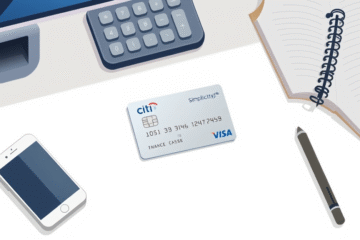Learning to save money has become more crucial than ever in today’s challenging economic landscape.
With rising costs and financial uncertainties, implementing effective saving strategies can make a significant difference in your financial well-being.
These 10 practical tips will help you develop better money management habits and achieve your financial goals without drastically changing your lifestyle.
By following these simple yet powerful guidelines, you can build a more secure financial future and reduce financial stress.
Understanding Daily Money-Saving Habits
Saving money isn’t just about cutting costs; it’s about adopting practical daily habits that make a significant impact over time.
By integrating simple techniques into your routine, you can better manage your finances and cultivate a more sustainable lifestyle.
Understanding these habits will empower you to prioritize your spending, reduce unnecessary expenses, and ultimately enhance your financial well-being.
Create a Budget
Budgeting plays a crucial role in personal finance management by offering a clear view of income and expenses. It enables individuals to make informed decisions about spending and saving, preventing overspending and fostering financial discipline.
A well-structured budget can enhance saving capabilities, ensuring that resources are allocated for both essentials and financial goals.
Consider the table below that contrasts actual expenses with a budget plan:
| Category | Actual Expenses | Budget Plan |
|---|---|---|
| Groceries | $300 | $250 |
| Entertainment | $200 | $150 |
| Bills | $400 | $400 |
This comparison shows potential savings by tracking spending closely and adjusting unnecessary costs.
Creating a budget not only helps in managing day-to-day finances but also supports achieving long-term financial aspirations by systematically setting aside funds. Therefore, consistent budgeting is essential for improving financial health and attaining personal financial goals.
Cook at Home
Cooking at home is a valuable financial practice that brings multiple advantages. By preparing meals at home, individuals can control costs more effectively. One of the major benefits is avoiding the additional expenses associated with dining out, such as service tips and high menu prices.
When you cook at home, you are able to buy ingredients in bulk, reducing the cost per meal significantly. This practice allows you to invest in quality ingredients that are both healthier and more economical in the long run.
Consider these quick, budget-friendly recipes with highlighted key ingredients:
- **Spaghetti Aglio e Olio**: main ingredients – spaghetti, garlic, olive oil, and **parsley**.
- **Vegetable Stir-fry**: main ingredients – broccoli, bell peppers, **soy sauce**, and ginger.
- **Chickpea Salad**: main ingredients – canned chickpeas, cucumber, cherry tomatoes, feta cheese.
Cooking these meals not only saves money but also fosters healthier eating habits by using fresh produce. These examples illustrate how preparing meals at home is both a financially and nutritionally rewarding endeavor.
Use Cash for Purchases
Using cash instead of credit or debit cards keeps spending tangible. Physical cash creates a visual tally of what has been spent and what’s left, enhancing budgeting awareness. Seeing actual money leave your wallet triggers more thoughtful decision-making. This psychological impact encourages mindful purchasing, as opposed to swiping a card, where the outflow isn’t visibly apparent.
For effective budgeting, allocate specific amounts for different expenses in separate envelopes. This method, known as the ‘envelope system,’ promotes discipline and prevents overspending. Categorizing cash promotes financial restraint, ensuring expenditures don’t exceed the set limits. Utilizing cash limits impulsive purchases, making financial goals more attainable.
Delay Large Purchases
Encourage mindfulness before making large purchases by emphasizing the importance of waiting. It helps avoid impulsive spending, ensuring financial stability in the long run.
Provide a checklist of reasons to delay a purchase:
- Assess necessity – Evaluate if you truly need the item.
- Research thoroughly – Gather extensive information about alternatives.
- Wait for discounts – Often, patience leads to better deals.
- Consider financial impact – Ensure it aligns with your budget.
Foster a thoughtful approach to spending for better financial health.
Review Your Financial Situation Regularly
Engaging in the routine practice of reviewing financial situations is essential for maintaining healthy finances.
This assessment should ideally be done monthly or quarterly to ensure accuracy.
A helpful approach is maintaining a checklist to evaluate crucial components effectively.
- An analysis of income sources should be performed to determine stability or potential growth.
- Evaluating expenses helps identify areas to save or cut costs;
- Analyzing debt levels assesses methods to manage and reduce effectively.
- Checking savings and investments tracks progress toward financial goals.
- Assessing insurance and emergency funds ensures preparedness for unforeseen circumstances.
Visit Euro Contabil for more financial review tips.
These evaluations provide a clear picture of your current standing, empowering better decision-making.
With regular assessments, you can adapt to changes like a salary increase or unexpected expenses, safeguarding stability and growth.
Set Specific Savings Goals
Having clear savings objectives is crucial for financial success, as they provide direction and motivation. When your goals are clear, it’s easier to understand what you are saving for and how much you need to save.
Effective strategies for setting and achieving savings goals include identifying your priorities and breaking down larger goals into smaller, manageable steps. This can help maintain momentum and achieve progress over time.
For example, saving for a vacation might start by allocating a specific amount each month. Alternatively, saving for a house down payment can involve creating a timeline and setting aside money from your salary regularly.
Using a financial tracking tool like Mint is highly recommended. Such tools provide insight into your spending habits, helping you identify areas to cut back and increase savings.
For additional guidance, see this article about planning financial goals. Regularly reviewing your progress ensures that your strategy remains aligned with your objectives.
By doing so, you not only achieve your goals faster but also remain motivated throughout the process.
Incorporating these money-saving habits into your daily routine can lead to significant financial improvements over time.
Remember that successful saving is about making consistent, mindful choices and staying committed to your financial goals.



0 Comments